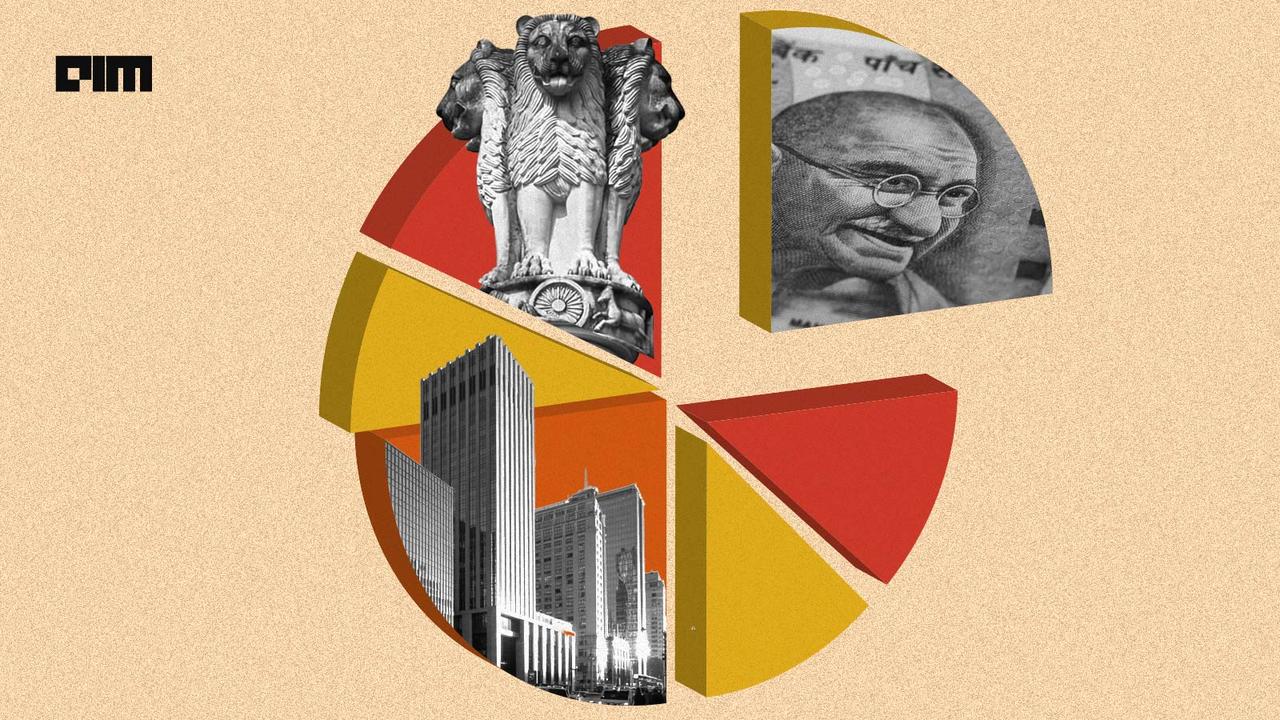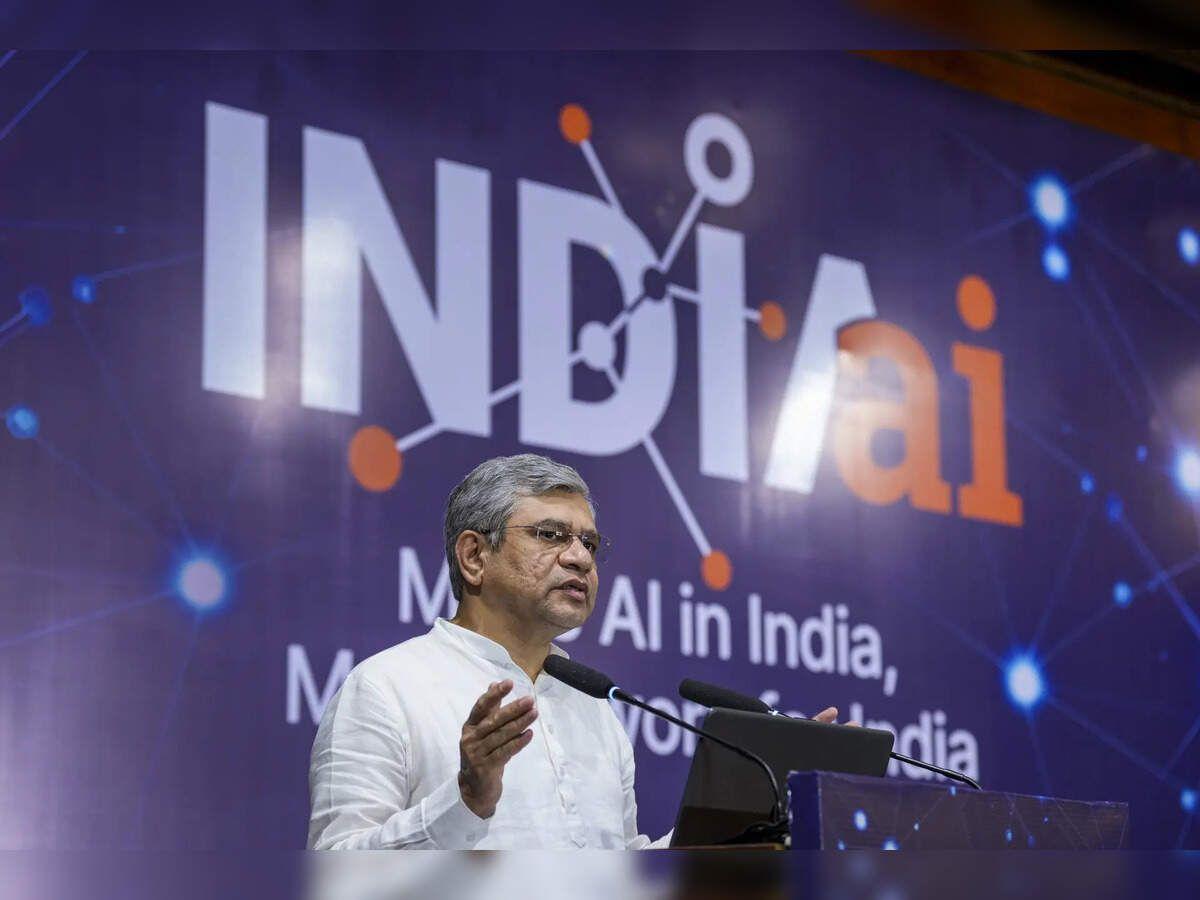India Bolsters AI Development: Eight Firms Selected for Phase 2 of IndiaAI Mission
4 Sources
4 Sources
[1]
BharatGen, Tech Mahindra, and Fractal Selected for Phase 2 of IndiaAI Mission
Avataar.ai, ZenteiQ.ai, Genloop, NeuroDX (IntelliHealth), and Shodh AI complete the list that make the cut. IndiaAI Mission has announced the selection of eight firms for the second phase. As reported exclusively by AIM earlier, this includes BharatGen, Tech Mahindra Fractal, and five others firms. The declaration was made at the AI Impact Summit 2026 on September 18 in New Delhi, conducted by the Ministry of Electronics & Information Technology (MeitY). Avataar.ai, ZenteiQ.ai, Genloop, NeuroDX (IntelliHealth), and Shodh AI are the other firms that have been selected, taking the total to 12 companies under the Mission's foundation model initiative, joining the existing four: Soket AI Labs, gnani.ai, Gan.AI, and Sarvam. The inclusion of BharatGen, which is funded by the department of science and technology, becomes another player to take on the challenge of building India's sovereign AI model. BharatGen has proposed building several AI models for the country starting from 2 billion parameters to 2 trillion. It had launched its first foundational LLM, Param-1, in May 2025. Built entirely from scratch, the 2.9 billion parameter bilingual model featured 25% Indic data -- far higher than global counterparts such as Meta's Llama, which had just 0.01%. The team, led by Prof Ganesh Ramakrishnan at IIT Bombay, also released 20 speech models across 19 Indian languages on AIKosha, targeting voice-first interfaces. "We have made significant technical progress, and the announcement of our models has already come from the DST secretary," Ramakrishnan earlier told AIM. The BharatGen consortium comprises IIT Bombay, IIT Kanpur, IIT Mandi, IIT Madras, IIT Hyderabad, IIIT Hyderabad, and IIM Indore. Sarvam, the first to get selected under the IndiaAI Mission, is expected to launch its foundational model early next year. The IndiaAI Mission, backed by MeitY, has been ramping up both compute and model-building capacity. In May, the government announced that total GPU capacity under the IndiaAI Compute Pillar had expanded to 34,000 GPUs, supported by a mix of public and private players. It is expected to expand further to 40,000 GPUs soon. Union IT Minister Ashwini Vaishnaw has repeatedly stressed that the goal for each selected team is to become a global top-five player in their chosen sector, whether in multilingual foundation models, speech AI, or multimodal applications.
[2]
[Exclusive] Govt to Select BharatGen, Fractal in Phase 2 of IndiaAI Mission
IndiaAI Mission will announce this move next week in an event in New Delhi. BharatGen is likely to be selected for the second phase of the IndiaAI Mission, marking a significant boost for its efforts to build open-source foundational models for Indian developers and researchers, sources in the department of science and technology told AIM. According to sources, IndiaAI Mission will announce the move next week in an event in New Delhi, alongside the announcement of seven other firms, including Fractal, for building India's foundational AI models. In May, Mumbai-based Fractal launched its open-source LLM, Fathom-R1-14B. The company claimed that the model delivers mathematical reasoning performance that surpasses o1-mini and o3-mini, and approaches o4-mini levels, all at a post-training cost of just $499. The company is slated to go for an IPO later th
[3]
Eight firms selected for incentives to develop foundational AI models - The Economic Times
Announcing the names, electronics and information technology minister Ashwini Vaishnaw also said that administrative rules under the Digital Personal Data Protection Act will be released within the next 10 days.Eight local firms have been selected as the second cohort of beneficiaries under the India AI Mission to develop foundational AI models. Announcing the names, electronics and information technology minister Ashwini Vaishnaw also said that administrative rules under the Digital Personal Data Protection Act will be released within the next 10 days. Avataar.ai, Bharatgen, Fractal Analytics, Tech Mahindra, Zeintech, Genloop Intelligence, NeuroDX, and Shodh AI have been selected as part of the second batch of Indian firms which will receive incentives to develop indigenous models. The latest batch of firms follow the four startups shortlisted so far -- Sarvam, SoketAI, Gan AI, and Gnani AI. Vaishnaw stressed that these firms are progressing very well, and are expected to unveil their models during the India AI Impact Summit next February.
[4]
Government to declare Round 2 beneficiaries of Rs 1,500 crore AI mission next week - The Economic Times
As part of the next round of incentives for the artificial intelligence (AI) foundational models under the IndiaAI Mission, the government is likely to select Avataar.ai, TechMahindra, Fractal Analytics, Genloop, IntelliHealth, Shodha AI, and Zenteiq Aitech Innovations. ET had reported on Friday that BharatGen is one of the eight companies that has been shortlisted by the ministry of electronics and IT (MeitY). Union IT and electronics minister Ashwini Vaishnaw is expected to announce the beneficiaries selected in the second round of screening next week. Initial public offering (IPO)-bound company Fractal Analytics had submitted a proposal to the IndiaAI Mission to build India's first large reasoning model (LRM) at a total project cost of Rs 118.8 crore, ET had reported in March. The LRM series will include a small model (two to seven billion parameters), a medium model (20-32 billion parameters), and a large state-of-the-art (SOTA) model (70 billion parameters) with up to one trillion training tokens. In terms of size, this is much larger than OpenAI's o1 and o3 reasoning models. BharatGen, a consortium of IIT researchers anchored by IIT Bombay and supported by the Department of Science and Technology, is also expected to receive the nod in this round. In July, BharatGen released a 2.9 billion parameter bilingual LLM called Param 1. The open-source model was pretrained on five trillion tokens in English and Hindi. IT services major Tech Mahindra, which launched the Indus Project, has created a 1.2 billion parameter model trained in 37 Indian dialects. In January this year, MeitY had announced an incentive allocation of Rs 1,500 crore for entities and individuals who proposed to build AI models from the ground up. By February 15, it had received 67 applications from Indian and global startups and researchers, followed by 120 more applications in the following month. The total number of applications has now reached 500. In the first round, four startups -- Sarvam, Soket Labs, Gnani.ai, and Gan.ai -- were approved to receive subsidised GPU compute for indigenous AI models. Separately, the government had also empanelled 10 GPU-as-a-service providers to build a common compute facility, wherein GPU compute can be accessed at less than $1 per hour -- among the lowest rates globally.
Share
Share
Copy Link
The Indian government has announced the selection of eight companies for the second phase of its IndiaAI Mission, aiming to develop indigenous foundational AI models. This move significantly expands India's AI capabilities and promotes local innovation in the field.
India Expands AI Capabilities with New Selections
The Indian government has taken a significant step forward in its artificial intelligence (AI) ambitions by announcing the selection of eight firms for the second phase of its IndiaAI Mission. This announcement, made at the AI Impact Summit 2026 in New Delhi, marks a crucial expansion of India's efforts to develop indigenous foundational AI models
1
.
Source: AIM
Selected Companies and Their Contributions
The newly selected companies include BharatGen, Tech Mahindra, Fractal, Avataar.ai, ZenteiQ.ai, Genloop, NeuroDX (IntelliHealth), and Shodh AI
3
. These firms join the four previously selected startups - Soket AI Labs, gnani.ai, Gan.AI, and Sarvam - bringing the total number of companies under the Mission's foundation model initiative to twelve1
.BharatGen, funded by the Department of Science and Technology, has proposed building AI models ranging from 2 billion to 2 trillion parameters. The consortium, led by Prof Ganesh Ramakrishnan at IIT Bombay, has already launched Param-1, a 2.9 billion parameter bilingual model with 25% Indic data
1
.Fractal Analytics, another selected firm, launched its open-source LLM, Fathom-R1-14B, in May. The company claims that this model delivers superior mathematical reasoning performance compared to some existing models
2
.Government Support and Infrastructure
The IndiaAI Mission, backed by the Ministry of Electronics & Information Technology (MeitY), has been ramping up both compute and model-building capacity. The government has expanded the total GPU capacity under the IndiaAI Compute Pillar to 34,000 GPUs, with plans to increase it to 40,000 GPUs soon
1
.
Source: AIM
Related Stories
Ambitious Goals and Future Prospects
Union IT Minister Ashwini Vaishnaw has emphasized that the goal for each selected team is to become a global top-five player in their chosen sector, whether in multilingual foundation models, speech AI, or multimodal applications
1
.
Source: ET
The minister also announced that administrative rules under the Digital Personal Data Protection Act will be released within the next 10 days, further strengthening India's digital infrastructure
3
.Financial Support and Future Events
The government has allocated Rs 1,500 crore in incentives for entities and individuals proposing to build AI models from the ground up
4
. The selected firms are expected to unveil their models during the India AI Impact Summit next February, showcasing the progress made under the IndiaAI Mission3
.References
Summarized by
Navi
Related Stories
India Selects Three More Startups to Develop Indigenous AI Foundation Models
31 May 2025•Technology

India Nears Finalization of Homegrown AI Models Under IndiaAI Mission
05 Apr 2025•Technology

India's AI Race: Government Launches IndiaAI Mission to Develop Sovereign Foundation Models
12 Feb 2025•Technology

Recent Highlights
1
Google Gemini 3.1 Pro doubles reasoning score, beats rivals in key AI benchmarks
Technology

2
Nvidia and Meta forge massive chip deal as computing power demands reshape AI infrastructure
Technology

3
ChatGPT cracks decades-old gluon amplitude puzzle, marking AI's first major theoretical physics win
Science and Research





